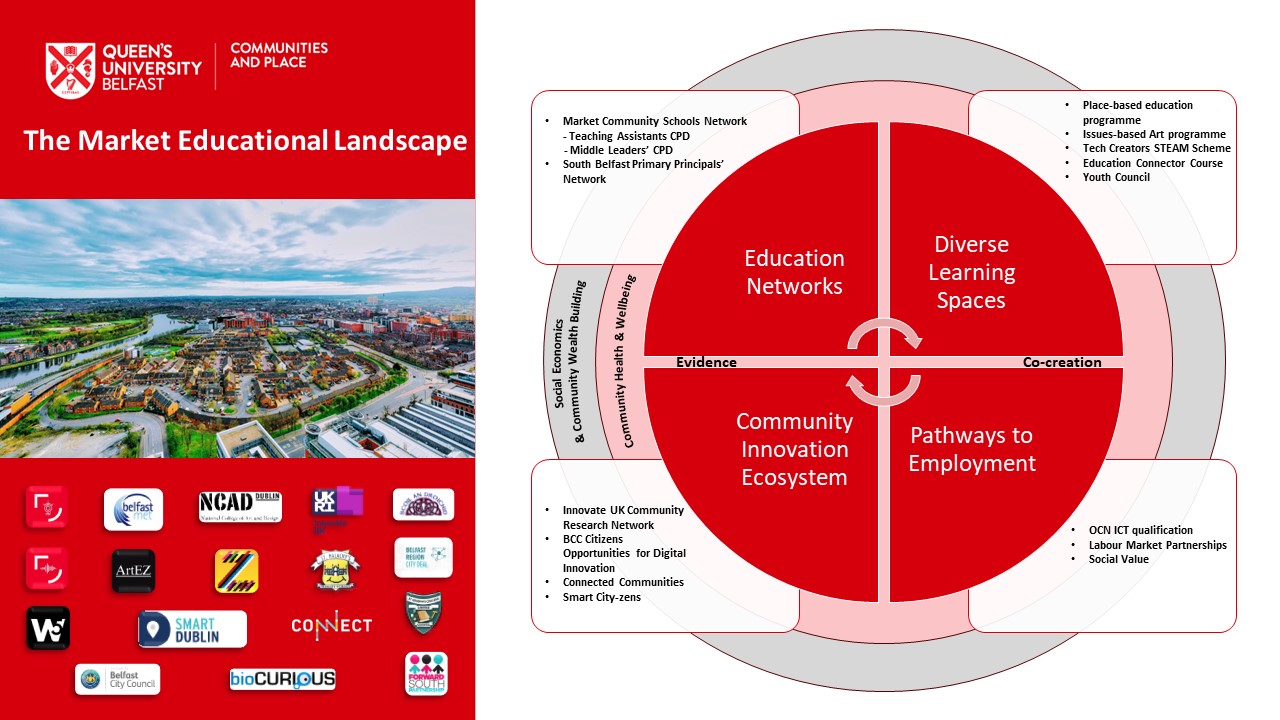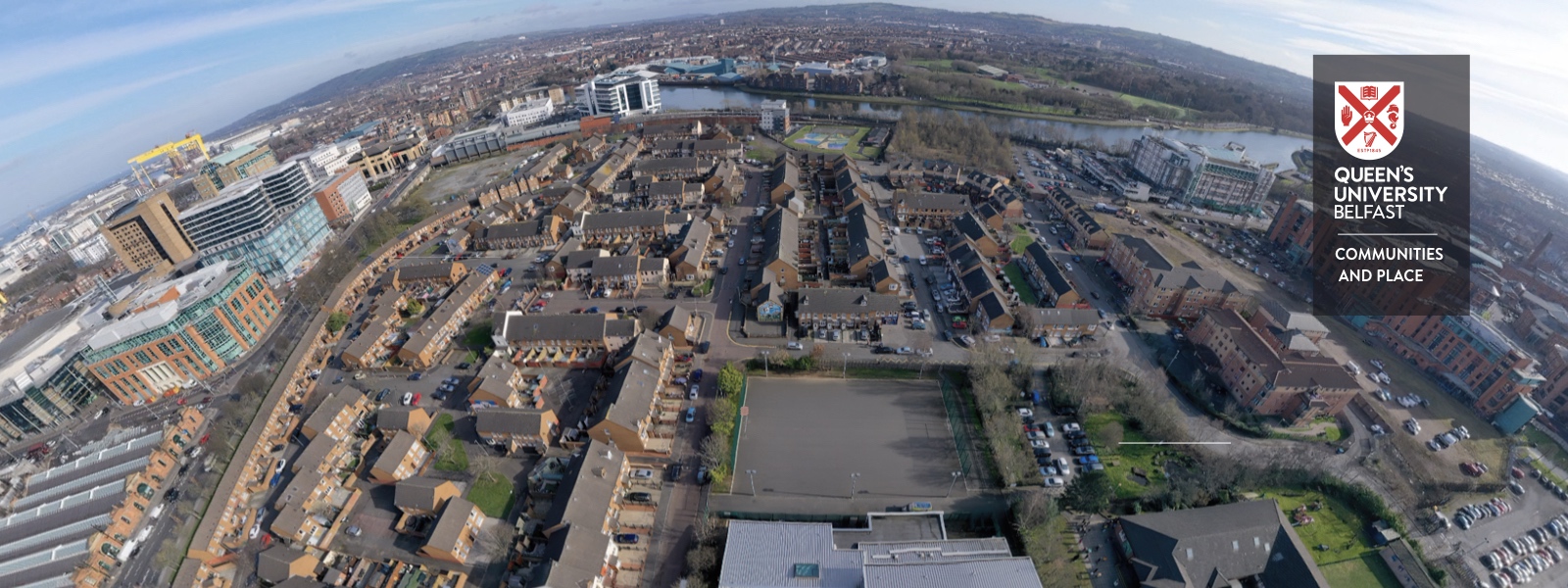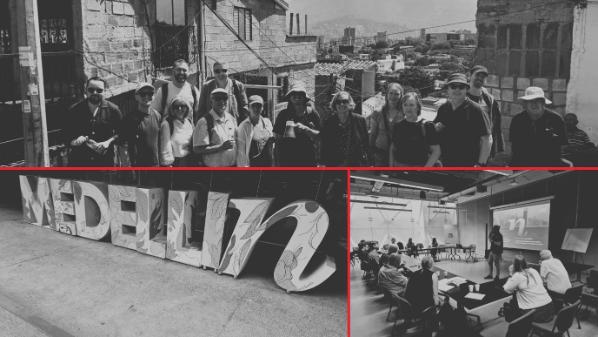Education, Skills, and Inclusive Innovation
Contact
Dr. Gareth Robinson - ga.robinson@qub.ac.uk
Education, Skills, and Inclusive Innovation (ESII) addresses educational inequality and ensures that our partner communities can adapt and thrive in future economic realities by directly supporting their needs, and co-creating opportunities, across three areas: Education, Innovation, and Work.
Education, innovation, and work in various forms are key to the levelling-up agenda and subsequent place-based policymaking and funding frameworks. For example, the Belfast Region City Deal includes pillars for both ‘innovation & digital’, and ‘employability & skills’ – and the UK government have moved to support ‘Education Investment Areas’ as a place-based approach for improving the quality of education (DfE, 2022). Part of the changing landscape of education in Northern Ireland is a focus on ensuring that every student is equipped with the tools and environment to be innovative, think critically, and acquire higher analytical skills. This aligns with a shift in our economy towards priority growth sectors that relate to advanced manufacturing, big data, fintech, cybersecurity, etc (Magill & McPeake, 2019). Advocates of a more inclusive knowledge economy highlight the need for more radical forms of education that encourage collaboration, creativity, experimentation, analytics, and critical thinking (Unger, 2019). The challenge, however, is that the system of education in Northern Ireland is marked by persistent inequality, with less favourable education outcomes tending to be concentrated in urban, working-class communities. Critics also advocate for communities to be more involved in the strategic development and local coordination of education and work in their particular places (Lybeck, 2022; Ainscow et al, 2023). This dimension of place is suitably positioned to explore how this can be done.
Education is central to our work with partner communities as it is seen as a key enabler for improving local conditions, agency, and addressing (under)achievement (Freire, 1970). The evidence suggests that to do this effectively within low-income areas it is also important to highlight and create local economic opportunity (e.g., work) through proximal institutions (Roscigno et al, 2006). Innovation is crucial for addressing community disadvantage because it offers new perspectives, approaches, and solutions that can effectively break the cycle of challenges faced by residents (Klingler-Vidra et al, 2022). Yet, marginalised communities and their forms of knowledge are often excluded from innovation processes. The priorities of ESII ensure that our partner communities have opportunities to develop skills and build capacity, but it also offers them a means of utilising their learning to benefit their community, themselves, and wider society. In other words, it is not enough to enable participation in a knowledge-based society - Education, Skills, and Inclusive Innovation intends to support our partner communities to shape it.
Strategic Priorities:
- To promote a more inclusive knowledge economy.
- To explore place-based approaches for addressing educational inequality.
- To support community research and inclusive innovation.
- To connect our partner communities to advanced industries and related labour markets.
Our work focuses on achieving five main things:
- Developing the critical educational landscapes of our partner communities.
- Developing the infrastructure for community innovation and research.
- Identifying and establishing pathways that connect QCAP activities to meaningful employment opportunities for residents.
- Creating touchpoints to education for residents within our partner communities.
- Connecting and supporting the various educational entities and stakeholders that serve our partner communities.
Overview of ESII projects and activities in The Market

-800x448.jpg)
Contacts -
Dr. Gareth Robinson - ga.robinson@qub.ac.uk


